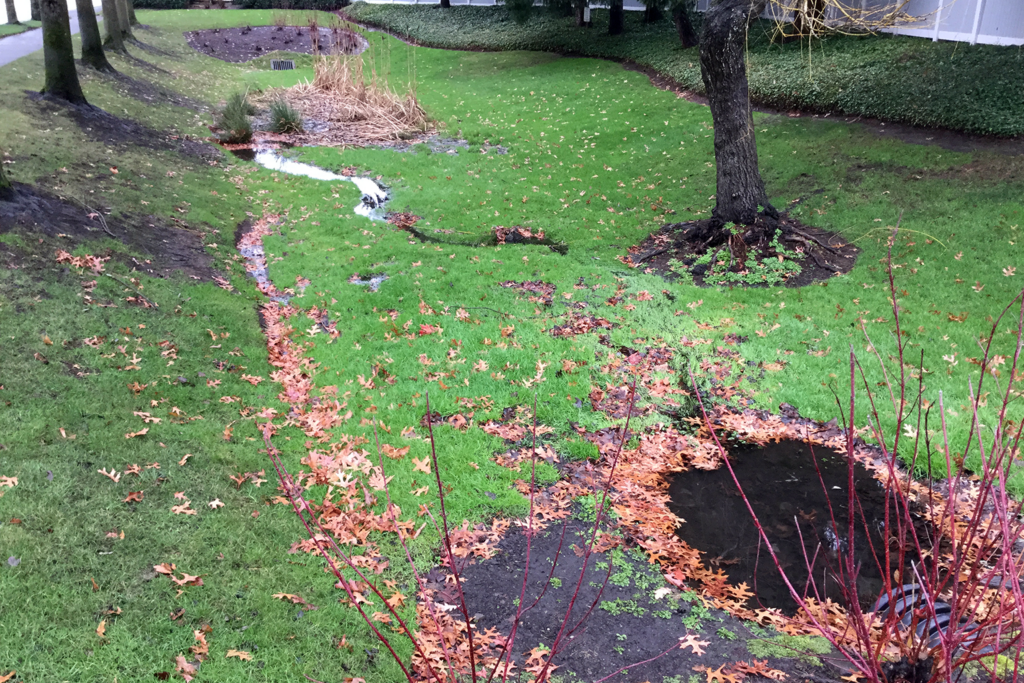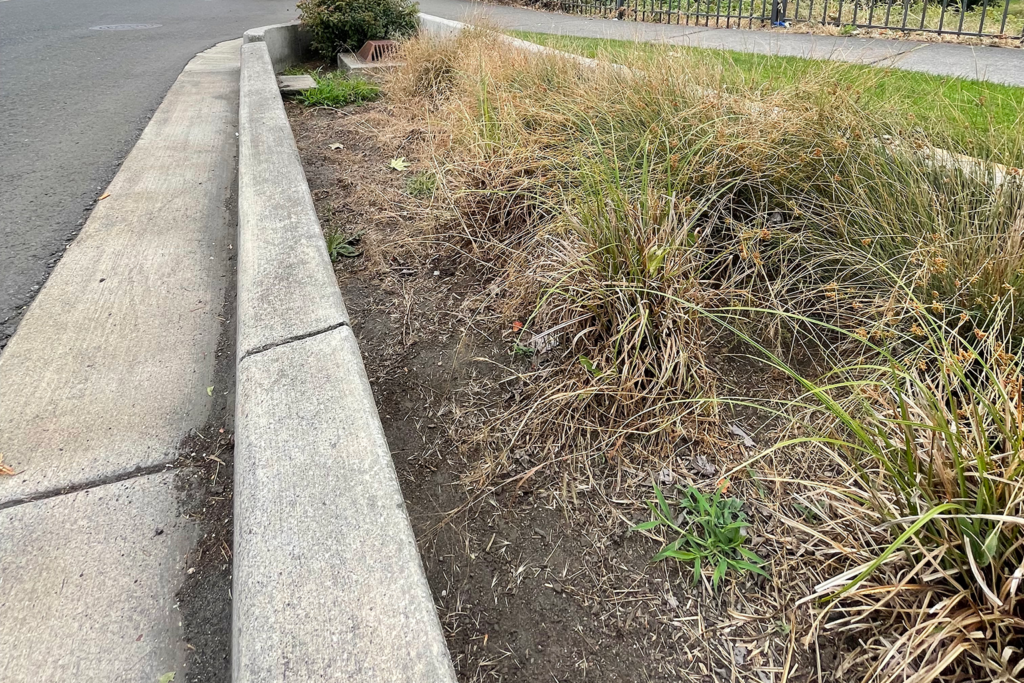Private Stormwater Facilities

Understand your role in maintaining the private stormwater facility in your HOA or neighborhood
When rains fall on a hard surface, such as roofs, streets and parking lots, it picks up sediment, pet waste, fertilizers and other pollutants. Eventually this rainwater, as it becomes stormwater runoff, makes its way to stormwater drains and facilities, and flows into creeks and rivers or seeps into the ground.
Stormwater facilities and LID (low impact development) methods are critical in helping remove pollution and managing the flow of stormwater runoff.
If there is a private stormwater facility in your neighborhood, your homeowners’ association (HOA) or property owners in your development are likely responsible for its care and maintenance.
There are some general practices and helpful tips you should follow to ensure your stormwater facilities are working properly to help improve the quality and quantity of the stormwater that can reach our water resources.
Develop a Plan and a Schedule
A routine maintenance schedule is recommended to assure that private facilities are operating as intended. Deferring maintenance can result in costly repair and restoration work if facilities have been neglected. Continue reading below for examples of types of facilities and additional resources to help you with your maintenance plan.
Inspections
Inspection of stormwater facilities is required by the state. These inspections, which are typically carried out at the local level, must be conducted annually at a minimum. In addition, it is highly recommended that facilities be inspected after each large storm event.
You’ll need to keep records of the inspections and cleaning performed for each stormwater facility. City staff may seek proof of service for underground systems, such as filter vaults and detention chambers, so retain reports and receipts if hiring contractors.
Use this Private Facility Stormwater Inspection Log and keep it up-to-date. This inspection log is to remain on site and must be made available upon request by City staff.
Types of Stormwater Facilities
Common stormwater facilities include roof downspouts, pervious pavements, infiltration trenches and rain gardens. Knowing what to do and how to do it, can save time and money and protect the health of waterways in our community.

Bioretention Stormwater Facilities
One example of a common type of stormwater facility you may see in your neighborhood is a bioretention facility. Bioretention facilities require annual plant, soil and mulch layer maintenance to ensure optimum infiltration, storage and pollutant removal capabilities. These facilities may or may not have underdrains or liners. Most of these routine maintenance procedures are typical in landscape care activities. Soil characteristics and depth in these facilities are important to their proper function and must be maintained according to design.
For guidance and tips to care for a well-functioning bioretention facility, consider the following:
- Sediment, trash, and debris
- Vegetation
- Watering
- Mulch
- Side slopes
- Structures
- Underdrains, if applicable
Underground Stormwater Facilities
Underground stormwater systems often require confined space entry and a specially trained professional to carry out maintenance. These confined spaces are dangerous unless done properly, which requires following all state and federal requirements for health and safety. The Stormwater Partners of Southwest Washington maintain a list of service providers and contractor, under the “Find a Maintenance Contractor” tab. Washington State Labor and Industries is a good resource for looing up contractors and verify their license to do work in our state.
Make sure the contractor you choose has the expertise to inspect underground Stormwater facilities. Underground stormwater facility inspections are different than cleaning and often involve the use of specialized camera equipment. The City will need you to provide a copy of this inspection report. Please note: A cleaning receipt cannot be accepted in lieu of the inspection report.
General Questions
Do you have a question about maintaining a private stormwater facility within the City of Vancouver? Contact a stormwater engineering technician at CityWaterProtection@cityofvancouver.us or 360-487-7130.


